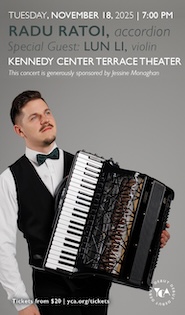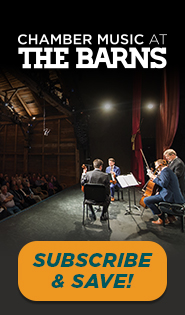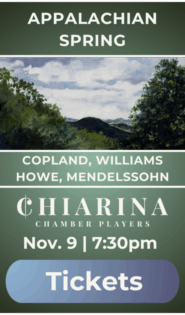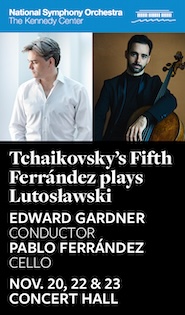Cooke and Huang give vivid advocacy to world premiere for Vocal Arts DC
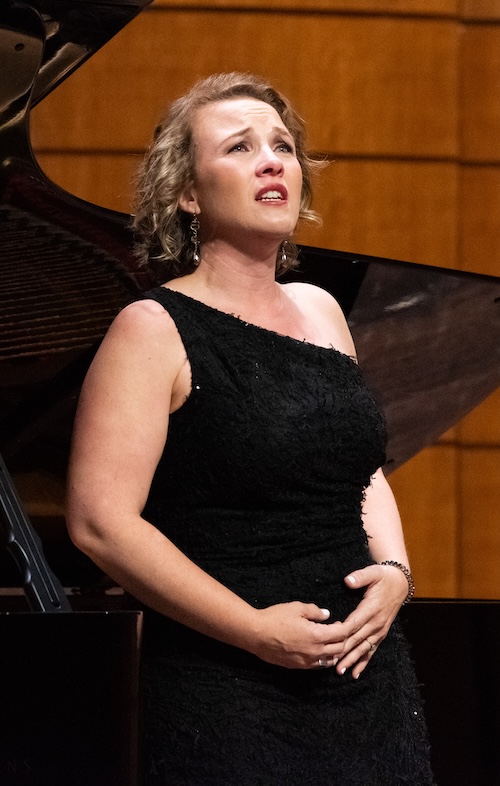
Sasha Cooke performed the world premiere of Jasmine Arielle Barnes’ American Lament Tuesday night for Vocal Arts DC at the Kennedy Center Terrace Theater. Photo: Courtney Ruckman
As the 250th anniversary of our nation’s founding draws near, classical musicians, like everyone else, will be grappling with the big questions: What is America today? What is the American ideal? How can we achieve or renew it?
On Tuesday night at the Kennedy Center’s Terrace Theater, Vocal Arts DC presented an early entry into that conversation, with Sasha Cooke’s program of American songs, titled “Of Thee I Sing.” The cornerstone of the concert was the world premiere of American Lament, a new song cycle by Jasmine Arielle Barnes, which was commissioned by Vocal Arts.
The 34-year-old Barnes attended Baltimore public schools and studied composition at Morgan State University. On Tuesday, she was in the audience for the exemplary debut of her vivid, absorbing work by mezzo-soprano Cooke and pianist Myra Huang.
American Lament sets most of Langston Hughes’ poem “Let America Be America Again”, broken up into three sections that are separated by a poem by Barnes and Claude McKay’s sonnet “America.” Including her own words alongside the 20th-century poems sets up a conversation among black artists across the decades, with a common yearning for an America that lives up to its own credo. That may sound didactic and preachy, but Barnes’ music is anything but. Rather, American Lament sets the texts in imaginative ways that underscore and extend their meaning, while also delighting the ear.
The word “America” rang out in a fanfare rhythm in the opening lines, “Let America be America again/Let it be the dream it used to be,” with Cooke’s voice soaring against bracing accompaniment from Huang. Barnes set the qualifier, “America never was America to me,” as an unaccompanied, plaintive reflection, sung with poise by Cooke, establishing the tension that informs the rest of the work.
Barnes used quotations to keen effect: a snatch of the “Star-Spangled Banner” sounds under the line “Say, who are you that mumbles in the dark?” Burbles of “God Bless America” are heard among Debussy-ish swirls for “the dream that’s almost dead today,” which Huang made sound like blurred visions of that dream.
Barnes’ own poem, “The River Remembers,” got supple, rippling arpeggios from Huang, with little tumbles and splashes of notes further evoking the water. Cooke beautifully sustained a gentle melodic line that crested, in volume and intensity, at the couplet “But with sweat and tears/I found home over Jordan.”
The second section of Hughes’ poem began in an upbeat march, but at the rejoinder “The free?”, Huang’s piano accompaniment slumped from a consonant chord to dissonance and then trailed off, like a thought dissolving and reforming.
The free structure of Barnes’ text made an effective contrast with the formality of McKay’s sonnet, which received a sensitive setting, keenly attuned to its poetic rhythms. Barnes sets the last words of the sonnet, “sinking in the sand,” to end with an unresolved dissonance low in Cooke’s register; her voice took on a firm, dark color as she sang it, feeling like a screw twisting into hard wood.
For all the rumination earlier in the cycle, Hughes’ concluding call to action, to “make America again!”, received a rousing musical affirmation from Barnes, with Cooke’s voice rising thrillingly on “again” and Huang commanding in her accompaniment.
American Lament deserves to be widely heard, particularly if Cooke and Huang are performing, and Vocal Arts DC should be commended for commissioning it.
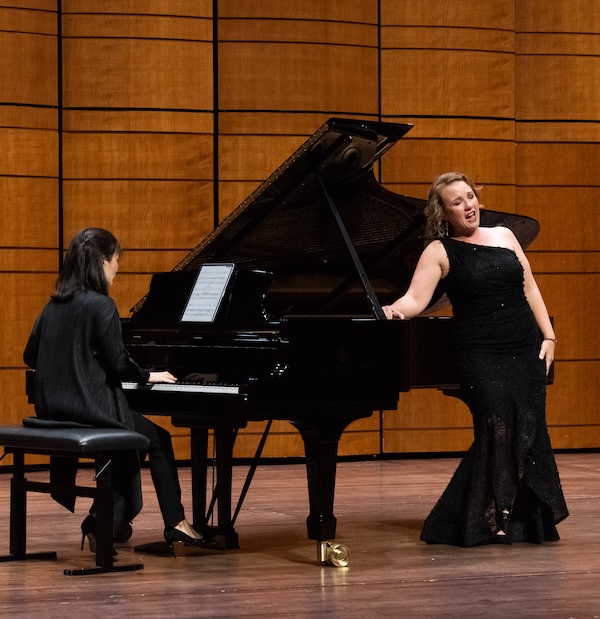
Mezzo-soprano Sasha Cooke and pianist Myra Huang performed Tuesday night for Vocal Arts DC. Photo: Courtney Ruckman
Cooke and Huang selected three groups of songs for the rest of the program, highlighting different aspects of the national musical experience.
The first group featured classical composers who borrowed from vernacular styles. Aaron Copland’s setting of “Shall We Gather at the River” and Samuel Barber’s “Sure on This Shining Night” received luminous performances from Cooke and Huang. The pianist ably tackled John Musto’s jazzy accompaniment to Edna St. Vincent Millay’s “Recuerdo,” with Cooke supplying both humor and pathos, and the duo helped Charles Ives conjure the power of booming brass and drums for his own “Circus Band” text.
Composers who fled or were forced from their native lands to the United States made up another group. Cooke and Huang gave sentimental, yet not mawkish, performances of songs by Sergei Rachmaninoff, Alma Mahler, and Erich Wolfgang Korngold, with a little extra swagger in Kurt Weill’s “Youkali,” a tango-inflected chanson about an imaginary Utopia. Moses Hogan’s arrangement of the spiritual “Give Me Jesus” had a different gravity, slow and spare. Cooke’s voice shone under the spotlight, with Huang in sympathetic support.
A final group of musical theater items found Cooke’s phrasing notably less formal, though her voice remained warm and appealing, and Huang was easily able to adapt to new idioms. The duo found charm and joy in “A Simple Song” from Leonard Bernstein’s Mass, another work that had its premiere at the Kennedy Center. Also heard were Michael Tilson Thomas’s winning prayer of “Grace”; and Stephen Sondheim’s reflective “Children Will Listen.” Cooke and Huang closed with the Gershwins’ “Of Thee I Sing” (music by George, text by Ira), wittily conflating love of country with romantic ardor—another perspective on American ideals.
Cooke and Huang gave a delightful encore of Jake Heggie’s “In the Beginning,” but it was Barnes’ American Lament that will linger in the memory from Tuesday’s concert.
Vocal Arts DC presents tenor Benjamin Bernheim and pianist Carrie-Ann Matheson in a program of French art songs February 8, 2026, at the Kennedy Center Terrace Theater. vocalartsdc.org
